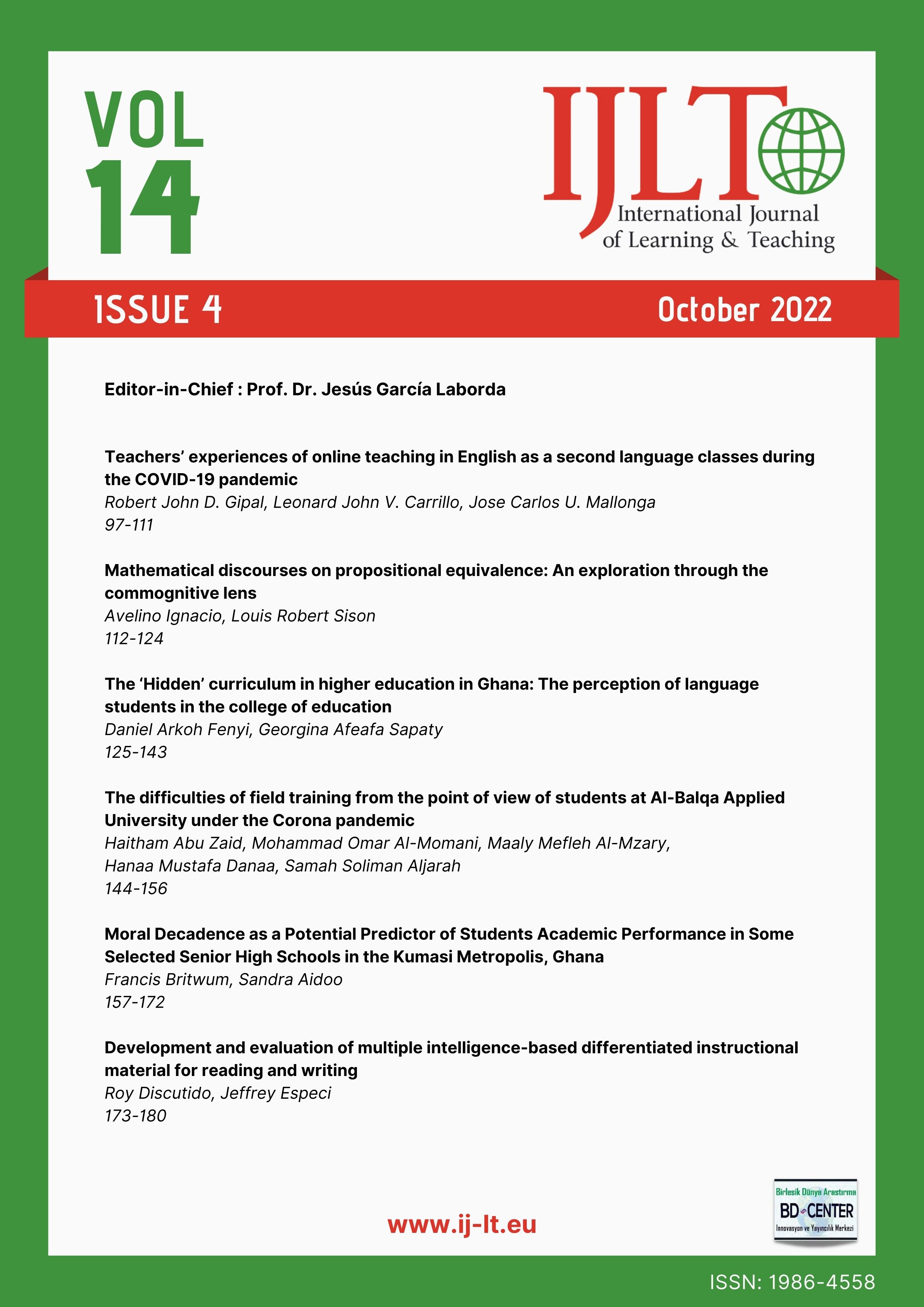The ‘Hidden’ curriculum in higher education in Ghana: The perception of language students in the college of education
Main Article Content
Abstract
Abstract
A holistic curriculum or education seeks to develop all three domains of learning: cognitive, psychomotor and affective. While the cognitive domain focuses on the mental and psychological fortitude of learners, the psychomotor focuses on the use and development of muscular or motor skills and the affective domain deals with the feelings, emotions and attitudes of students. Interestingly, not all these domains are sufficiently written or documented as guidelines or curricula for classroom practice. It is for such reasons that the ‘hidden’ curriculum becomes needful, as it not only complements the official curriculum but plays a significant role in shaping the values of learners. This qualitative study engages 52 language students in a college of education in Ghana to reveal their views on their experiences with the ‘hidden’ curriculum. Questionnaires and semi-structured interviews were the data collection instruments. The inductive content analysis technique is used to analyse the collected data. The outcome of the study reveals that gender and sexuality, religion, politics, hard work and confidence are values ‘taught’ through the hidden curriculum. The findings of the study create awareness, especially for teachers that, beyond ‘what’ they teach in the classroom, ‘how’ they teach also unconsciously transmits lessons. This means that teachers should be mindful of how they dress, walk, talk and behave in the classroom since all these virtues contribute to the overall teaching and learning process.
Keywords: Curriculum, cognitive skills, psychomotor skills, affective skills, classroom practice;
Downloads
Article Details

This work is licensed under a Creative Commons Attribution 4.0 International License.
Authors who publish with this journal agree to the following terms:
- Authors retain copyright and grant the journal right of first publication with the work simultaneously licensed under a Creative Commons Attribution License that allows others to share the work with an acknowledgement of the work's authorship and initial publication in this journal.
- Authors are able to enter into separate, additional contractual arrangements for the non-exclusive distribution of the journal's published version of the work (e.g., post it to an institutional repository or publish it in a book), with an acknowledgement of its initial publication in this journal.
- Authors are permitted and encouraged to post their work online (e.g., in institutional repositories or on their website) prior to and during the submission process, as it can lead to productive exchanges, as well as earlier and greater citation of published work (SeeThe Effect of Open Access).
